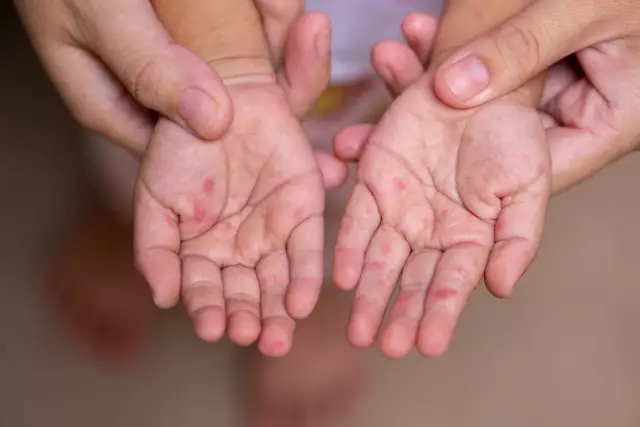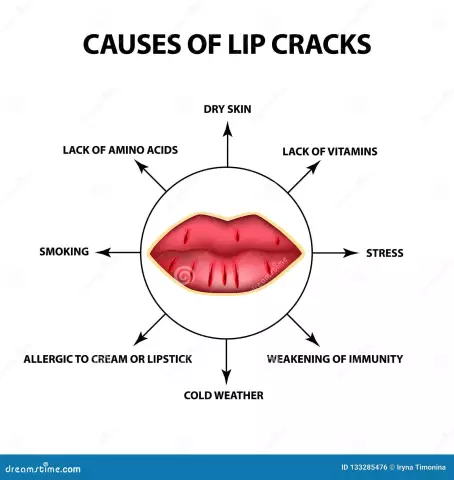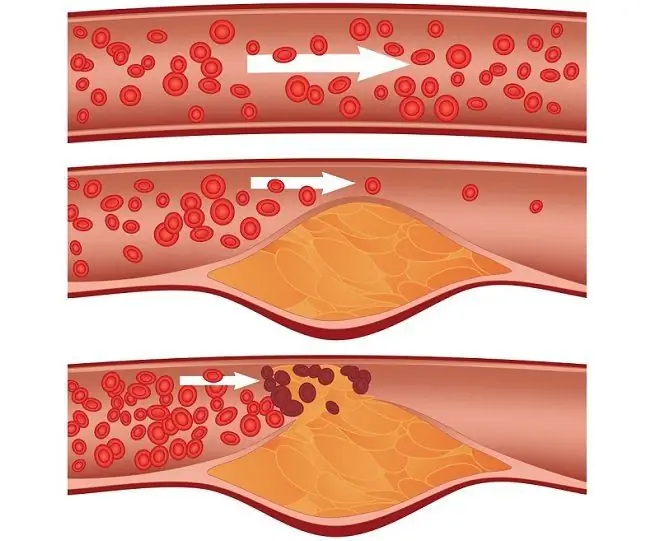- Author Rachel Wainwright wainwright@abchealthonline.com.
- Public 2023-12-15 07:39.
- Last modified 2025-11-02 20:14.
Dry mouth: 8 main causes of discomfort
Dryness of the mucous membrane of the mouth (xerostomia) is considered by many people to be a minor and easily manageable inconvenience. This is a misconception: a symptom may indicate the presence of serious diseases. We should not forget that saliva performs important functions in the body: it cleans the surface of the teeth from food plaque, inhibits the growth of pathogenic microorganisms, normalizes the acid-base balance, liquefies food and helps to break down carbohydrates contained in it. Chronic saliva deficiency leads to serious health problems.
The causes of xerostomia can be very different. Let's consider the most common ones.

Source: depositphotos.com
Intoxication
The drying effect of alcohol and its decomposition products (in particular, acetaldehyde) is familiar to every person who has abused alcohol at least once in his life. The result of such immoderation is not only general dehydration of the body, but also inhibition of the function of the salivary glands.
Almost all drugs have a similar effect.
Breathing problems
People with chronic nasal congestion, sleep apnea or snoring at night often experience dry mouth and a sore throat in the morning. The discomfort is due to the fact that breathing through the mouth promotes too rapid evaporation of fluid from the mucous membranes.
Smoking
The effect of nicotine and tobacco combustion products is manifested by a decrease in the production of saliva. In addition, these substances cause general intoxication of the body and irritation of the mucous membranes in direct contact with tobacco smoke.
For experienced smokers, the feeling of dry mouth becomes familiar.
Improper eating behavior
Drying out of the mucous membrane of the oral cavity provokes not only salty food, but also excessively sweet, fatty or spicy foods, that is, any food that requires increased salivation to digest.
Particularly harmful in this sense are chips, crackers, fish delicacies "for beer" (dried or dried), various sweet bars, lollipops, chewing candies and other "snacks". These foods (in addition to excess salt or sugar) contain flavorings that have a negative effect on the functioning of the salivary glands.
Diseases
The list of ailments that can lead to xerostomia is very wide. It includes:
- SARS, influenza and other infections accompanied by an increase in body temperature;
- diseases that cause diarrhea and therefore dehydration;
- pathological processes that provoke severe sweating. These include heart attacks, strokes, arthritis, etc.;
- conditions that worsen the function of the salivary glands (AIDS, cancer);
- inflammatory processes in the salivary glands or surrounding tissues, as a result of which the outflow of saliva is disrupted (the ducts of the glands are blocked);
- head and neck injuries;
- diabetes mellitus (including gestational);
- Alzheimer's disease;
- Sjogren's syndrome (an autoimmune disease, one of the symptoms of which is the drying out of all mucous membranes);
- pathology of the digestive tract (stomach, liver, pancreas).
Age changes
Women with thermoregulatory disorders during menopause (experiencing hot flashes) lose a lot of fluid through sweat. This condition can cause a dry mouth sensation.
With age, the brain's response to signals sent by various organs diminishes. This is why very elderly people often have a false lack of appetite or thirst (when they need water and food). If a person in a similar situation does not consume water in the amount required by the body, xerostomia occurs.
Dehydration
The body loses fluid intensively during physical exertion. In addition, dry mouth occurs when you are in the open for a long time or in a room with an unsuccessful microclimate (for example, when the air in a room is dried out with electric heating devices).

Source: depositphotos.com
Taking certain medications
Many medicines can cause xerostomia. This property is possessed by some antibacterial and antihistamines, antidepressants, pain relievers. Information about side effects of this kind is usually included in the instructions for the medication.
A person who regularly experiences dry mouth sensations should see a doctor and have their recommended examination. This will help to find the cause of discomfort, assess the presence of pathologies and start treatment on time.
YouTube video related to the article:

Maria Kulkes Medical journalist About the author
Education: First Moscow State Medical University named after I. M. Sechenov, specialty "General Medicine".
Found a mistake in the text? Select it and press Ctrl + Enter.






